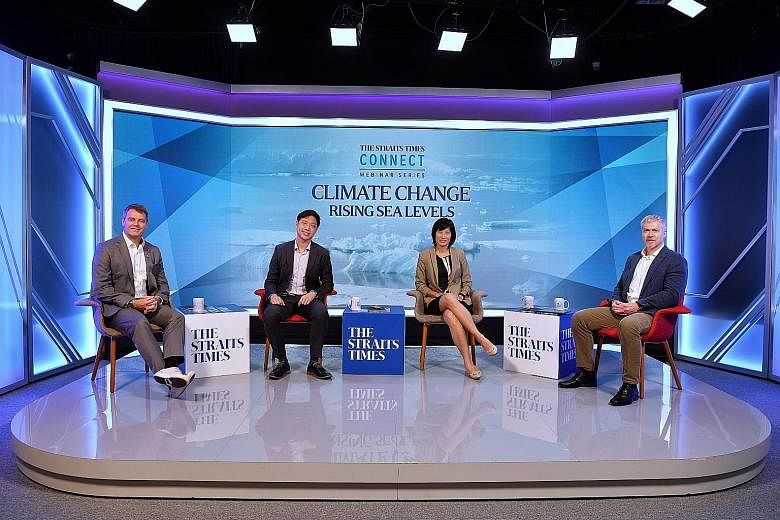The webinar was moderated by Mr David Fogarty, climate change editor at The Straits Times.
Professor Benjamin Horton
Director of the Earth Observatory of Singapore at Nanyang Technological University
Prof Horton's research focuses on sea-level change. He aims to understand the mechanisms that have determined sea-level changes in the past, that will impact future changes. He is also an editor for the Intergovernmental Panel on Climate Change (IPCC) Sixth Assessment Report.
Dr Zeng Yiwen
Senior research fellow at the NUS Centre for Nature-Based Climate Solutions
Dr Zeng is an applied ecologist, geospatial analyst and conservation scientist. His areas of expertise include biodiversity conservation, sustainable development and climate change mitigation. His work at the university is focused on identifying key strategies to implement nature-based climate solutions across various ecosystems.
Ms Hazel Khoo
Director of the coastal protection department at national water agency PUB
Ms Khoo's department is driving and coordinating whole-of-government efforts to develop long-term strategies to protect Singapore from rising sea levels. One of her key tasks is to oversee site-specific studies for City-East Coast and the north-western coast of Singapore, to develop coastal adaptation pathways and measures.
The webinar was moderated by Mr David Fogarty, climate change editor at The Straits Times.
TACKLE ROOT CAUSE
If we don't get to the root cause and reduce greenhouse gas emissions, it's an existential threat... You need to remove the greenhouse gases to slow down the rates of (sea-level) rise. Then we can adapt, then we can live along the coastline, we can work along our coastline, and our ecosystems can thrive.
PROFESSOR BENJAMIN HORTON, director of the Earth Observatory of Singapore at the Nanyang Technological University.
HABITATS AT RISK
Mangrove habitats have the ability to move further inland as the water rises... The problem is, when we develop land areas behind the mangroves... that blocks all these habitats from moving further inland to adapt to the sea-level rise... If you add the potential for storm surges and changes to hydrology, that would put these habitats at risk.
DR ZENG YIWEN, senior research fellow at the NUS Centre for Nature-Based Climate Solutions.
THREAT OF EXTREME SEA LEVELS
We are expecting a rise in mean sea level by up to about 1m by the end of this century. And if we were to include the tidal effects, as well as the surge components of sea-level rise, we can expect that extreme sea levels could be as high as 4m or even 5m in Singapore... We can expect that the East Coast Parkway could be partially submerged, and even landmarks like the Singapore Sports Hub will also not be spared. ''
MS HAZEL KHOO, director of PUB's coastal protection department.


